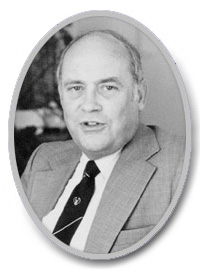David Tonkin
David Tonkin | |
|---|---|
 | |
| 38th Premier of South Australia Elections: 1977, 1979, 1982 | |
| In office 18 September 1979 – 10 November 1982 | |
| Preceded by | Des Corcoran |
| Succeeded by | John Bannon |
| Personal details | |
| Political party | Liberal Party of Australia |
Dr David Oliver Tonkin AO (20 July 1929 – 2 October 2000) was the 38th Premier of South Australia, serving from 18 September 1979 to 10 November 1982.
Early life
Born in Adelaide, Tonkin's father died when he was five, leaving Tonkin's mother to raise him and his siblings. Tonkin attended local public schools before gaining a scholarship to St Peter's College. Accepted into Medicine at the University of Adelaide, Tonkin worked as a taxi driver while completing his degree and practiced as a General Practitioner before undertaking a postgraduate ophthalmology course in London. He established a practice in Adelaide and was soon considered one of the city's leading eye surgeons. Tonkin was of Cornish ancestry.[1]
Tonkin's dedication to public service was in evidence through his honorary service as an eye surgeon to Adelaide public hospitals and the initiation, through the Lions Club, of Australia's first public screening programme for glaucoma. In 1962 Tonkin became executive director of the Australian Foundation for Prevention of Blindness SA Inc.
Early political career
From a young age, Tonkin was a supporter of the Liberal and Country League (LCL), handing out how-to-vote cards at the 1939 election for the party. His prominence in Adelaide society and his community service made him an ideal LCL candidate and in 1967, he unsuccessfully ran for the Electoral district of Norwood against Don Dunstan before winning the adjacent seat of Bragg at the 1970 election.
Tonkin quickly gained a reputation as a progressive member of the LCL and was an early supporter of the Liberal Movement faction created by former premier Steele Hall, although Tonkin remained with the LCL when the Liberal Movement split from it.
Tonkin first gained statewide prominence in 1974 when he successfully introduced a private member's bill to outlaw sex discrimination, the first such law in Australia. This prominence led to a successful 1975 challenge to LCL parliamentary leader Bruce Eastick for the party leadership.
As leader, Tonkin worked toward healing the internal party wounds by coaxing the Liberal Movement back into the Liberal fold, which helped the Liberal Party to regain government at the 1979 election against a seemingly disunited Australian Labor Party.
Premier
As Premier, Tonkin combined fiscal conservatism with implementing socially progressive reforms. In the former, Tonkin made significant cuts to the public service, earning him the enmity of the unions, while an example of the latter was the passage of the land rights bill and the return to the Pitjantjatjara people of 10 per cent of South Australia's area.
Other significant actions include the development of the copper and uranium mine at Olympic Dam (Roxby Downs), extending his earlier anti-discrimination provisions to include physical disability, establishing the Ethnic Affairs Commission and introducing random breath testing.
Bidding for re-election at the 1982 state election, Tonkin had support of the South Australian media. However, nationwide and locally, the economy was in poor shape, and Tonkin suffered a large swing at the 1982 Florey by-election. He lost the state election to the John Bannon led Labor Party, and resigned from parliament shortly after following a heart complaint, which sparked a Bragg by-election.
After politics
Subsequently, Tonkin returned to ophthalmology and served in various capacities in different government and community organisations, including chairman of the board of the State Opera from 1985 to 1986 and vice-president of Sturt Football Club. In 1986 he assumed the London-based position of secretary-general of the Commonwealth Parliamentary Association.
Returning to Australia in 1992, Tonkin was made an Officer of the Order of Australia in 1993 and served as chairman of the South Australian Film Corporation from 1994 to 1996. A stroke in 1996 permanently affected his speech and forced him into retirement.
Tonkin was awarded the Liberal Party's outstanding achievement award in 2000 by Prime Minister John Howard and died in his sleep at Mengler Hill, Barossa Valley, South Australia, on 2 October 2000 while attending a music festival. He was survived by his wife Prue, six children and 10 grandchildren.
Following his death, the Pitjantjatjara people paid tribute to Tonkin, stating that no Liberal politician had done as much for Aboriginal people. Others stated that he lost the 1982 election because he lacked the ruthlessness required of successful politicians.[2]
The Board Room in the Bragg Electorate Office is named in his honour. In addition, a Memorial Dinner in his name is also now held each year by The South Australian Young Liberal Movement.
References
- ^ http://books.google.co.uk/books?id=yTKFBXfCI1QC&pg=PA234&lpg=PA234&dq=bob+hawke+cornwall&source=bl&ots=8rHMjdXsOw&sig=3s7qbDBVgoqheXGKPqSgn9HGLlg&hl=en&ei=h47YTKXiJd3NjAeYnP3JCQ&sa=X&oi=book_result&ct=result&resnum=5&ved=0CCgQ6AEwBA#v=onepage&q=bob%20hawke%20cornwall&f=false
- ^ Jory, R. (2000) "Gentleman politician with music in his soul", Adelaide Advertiser, p 18, 4 October 2000.
- Debelle, P. (2000) "Obituaries - David Oliver Tonkin, AO - South Australian Premier", The Age, p 11, 18 October 2000.
- Kemp, M. (2000) "A reformer and a gentleman", Adelaide Advertiser, p 76, 7 October 2000.
- Kemp, M. (2000) "Prime Minister pays Tribute to Former Premier David Tonkin", Adelaide Advertiser, p 5, 12 October 2000.
- Laidlaw, D. (2000) "Premier fostered progress", The Australian, p 12, 25 October 2000.
- David Tonkin, Parliament of South Australia. Accessed 14 August 2006.
